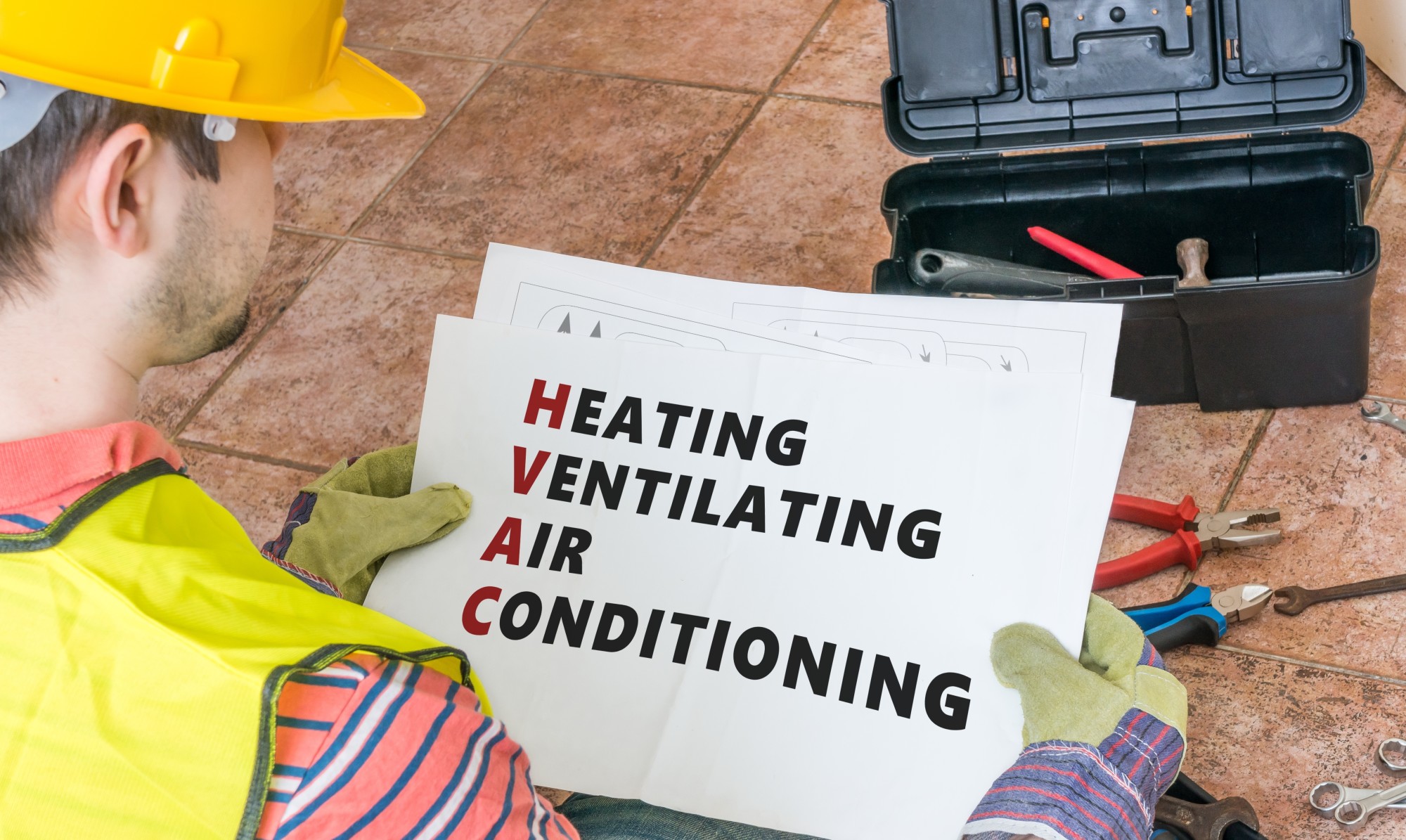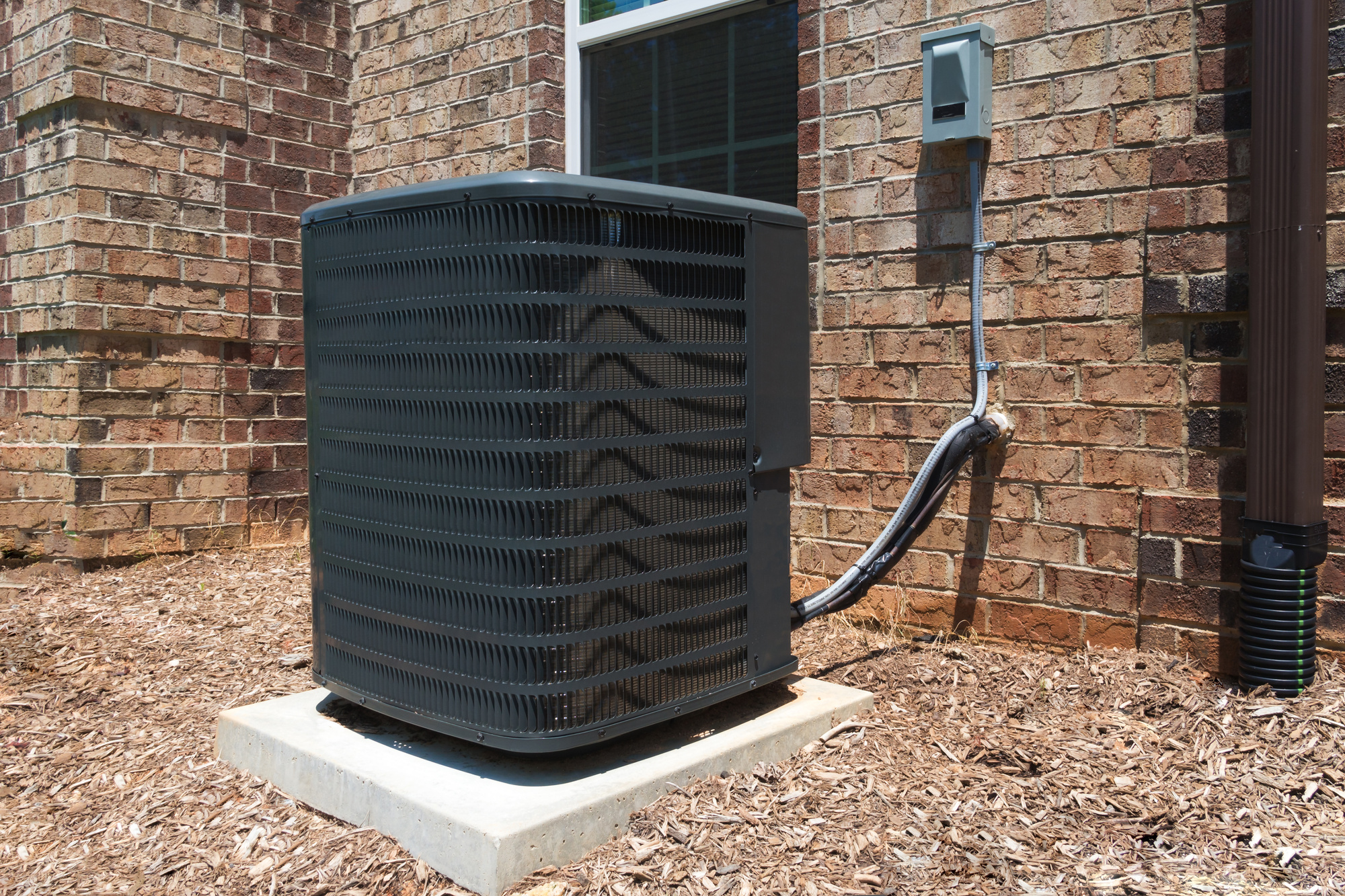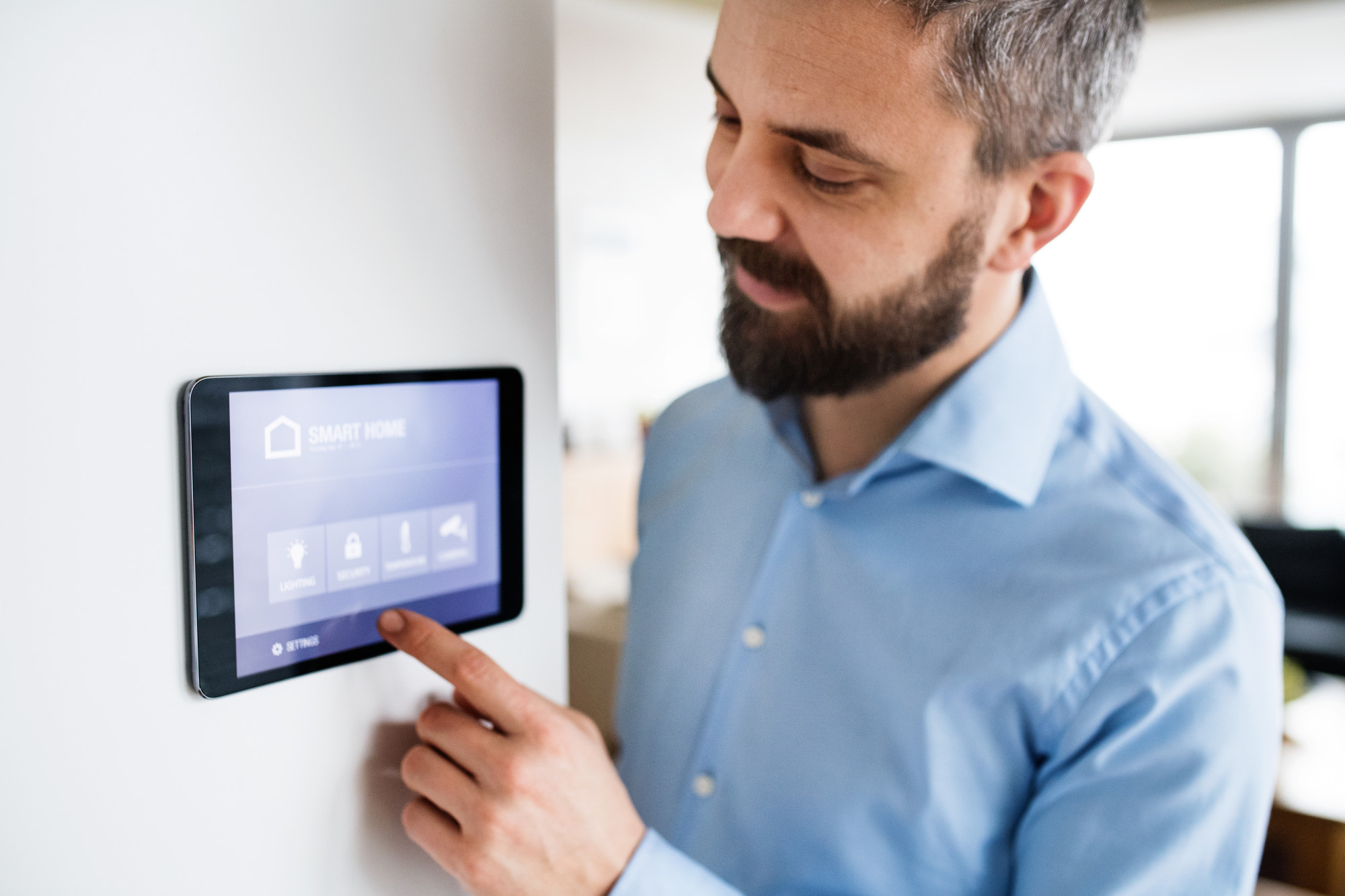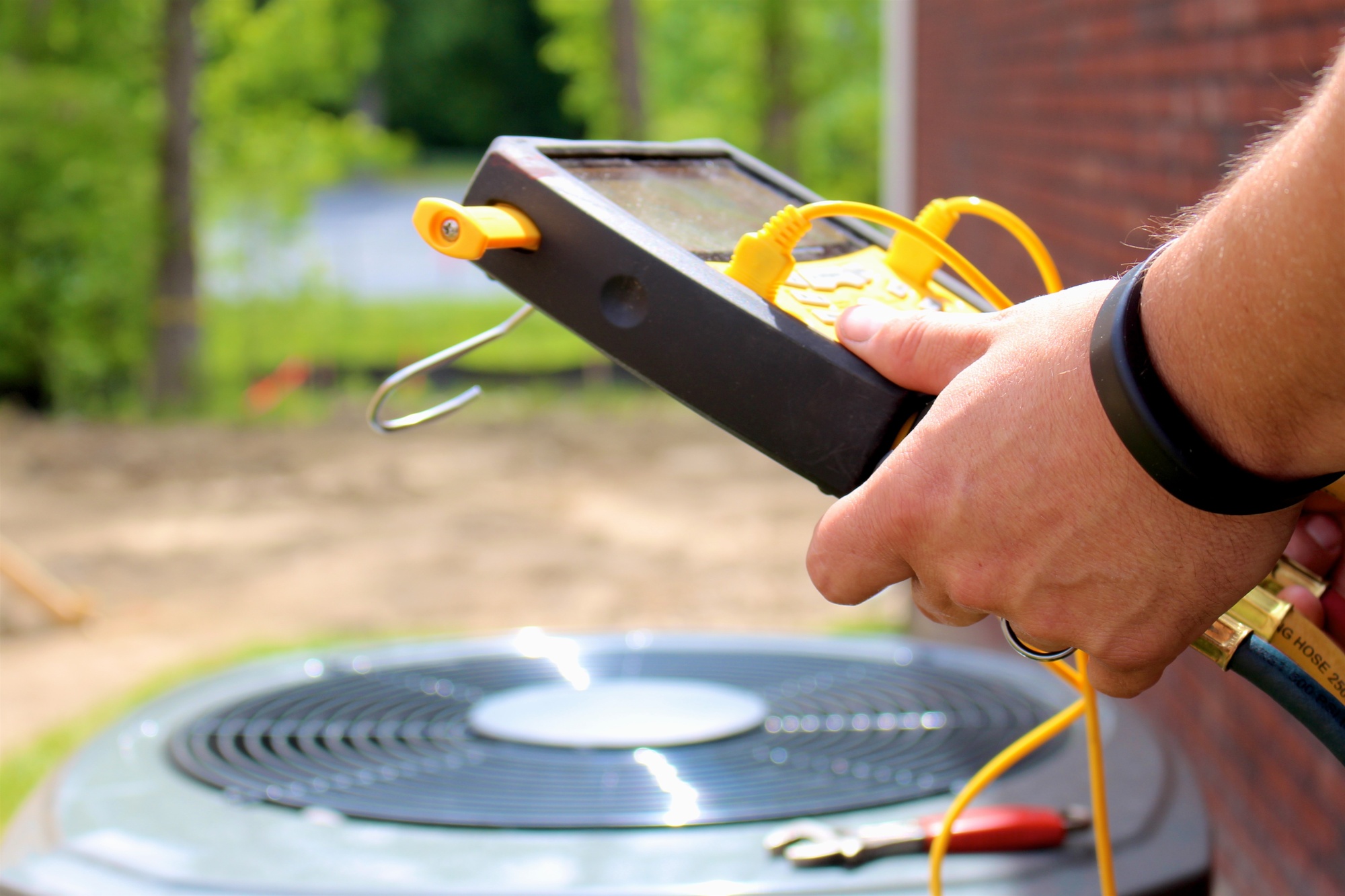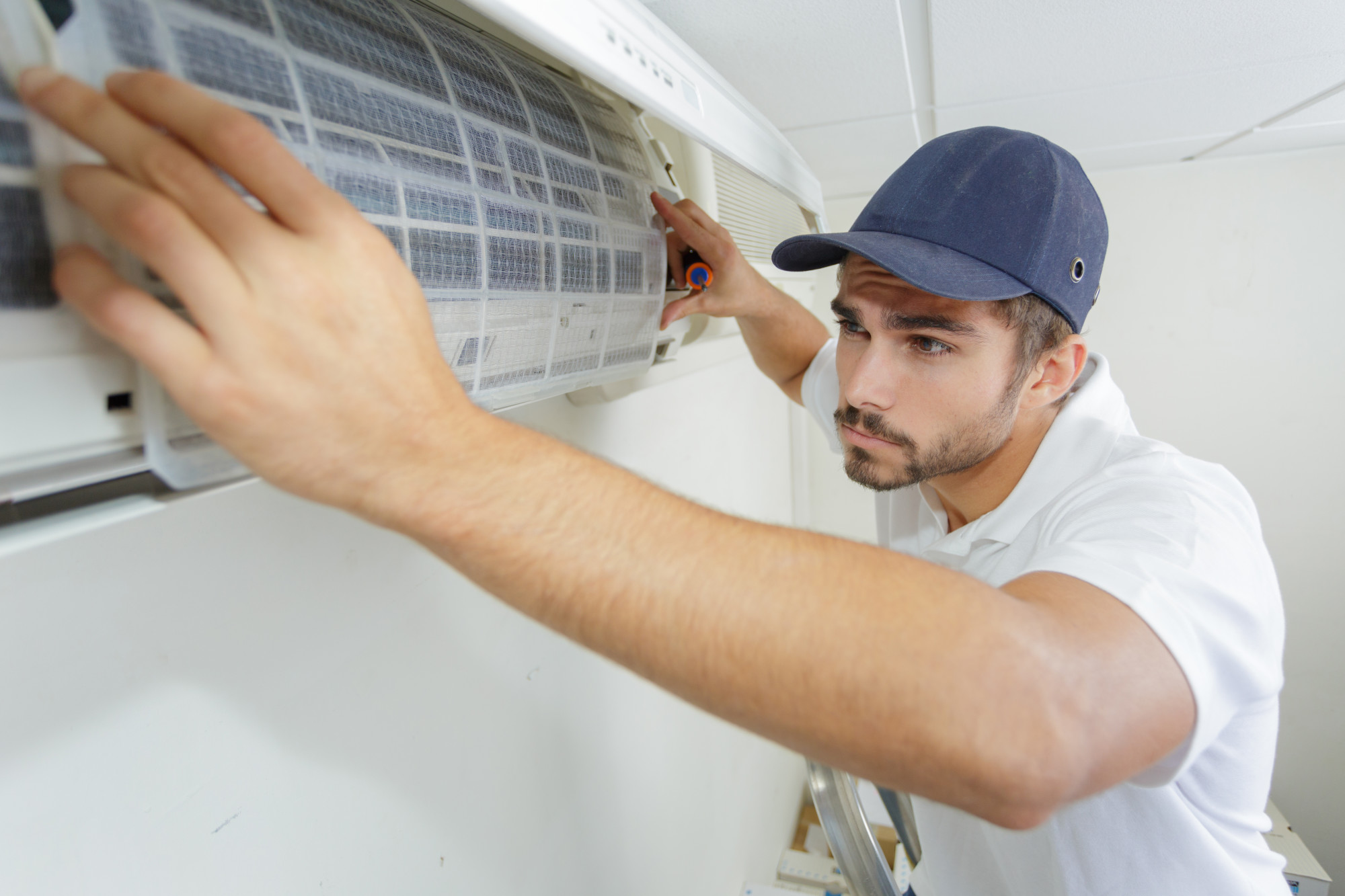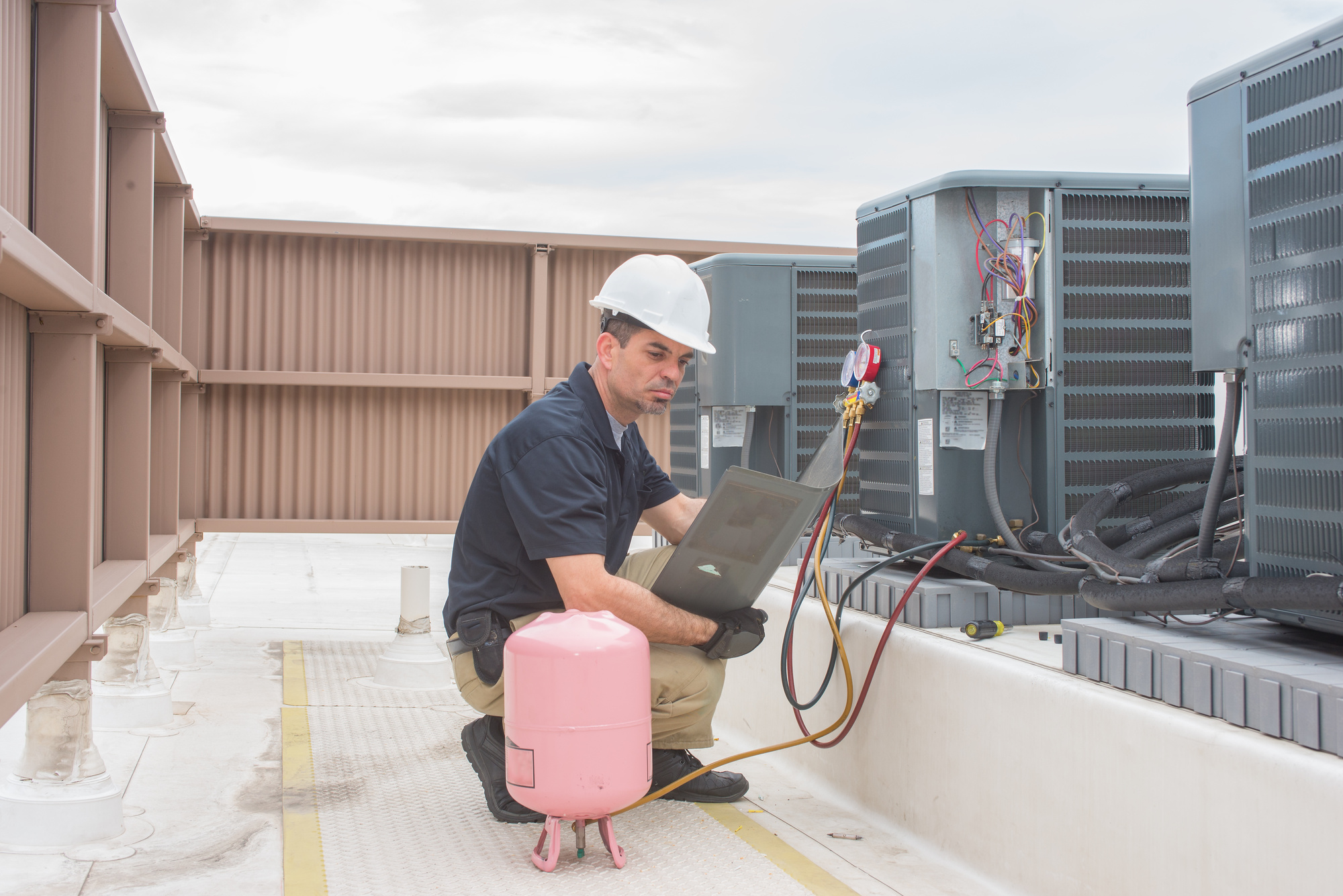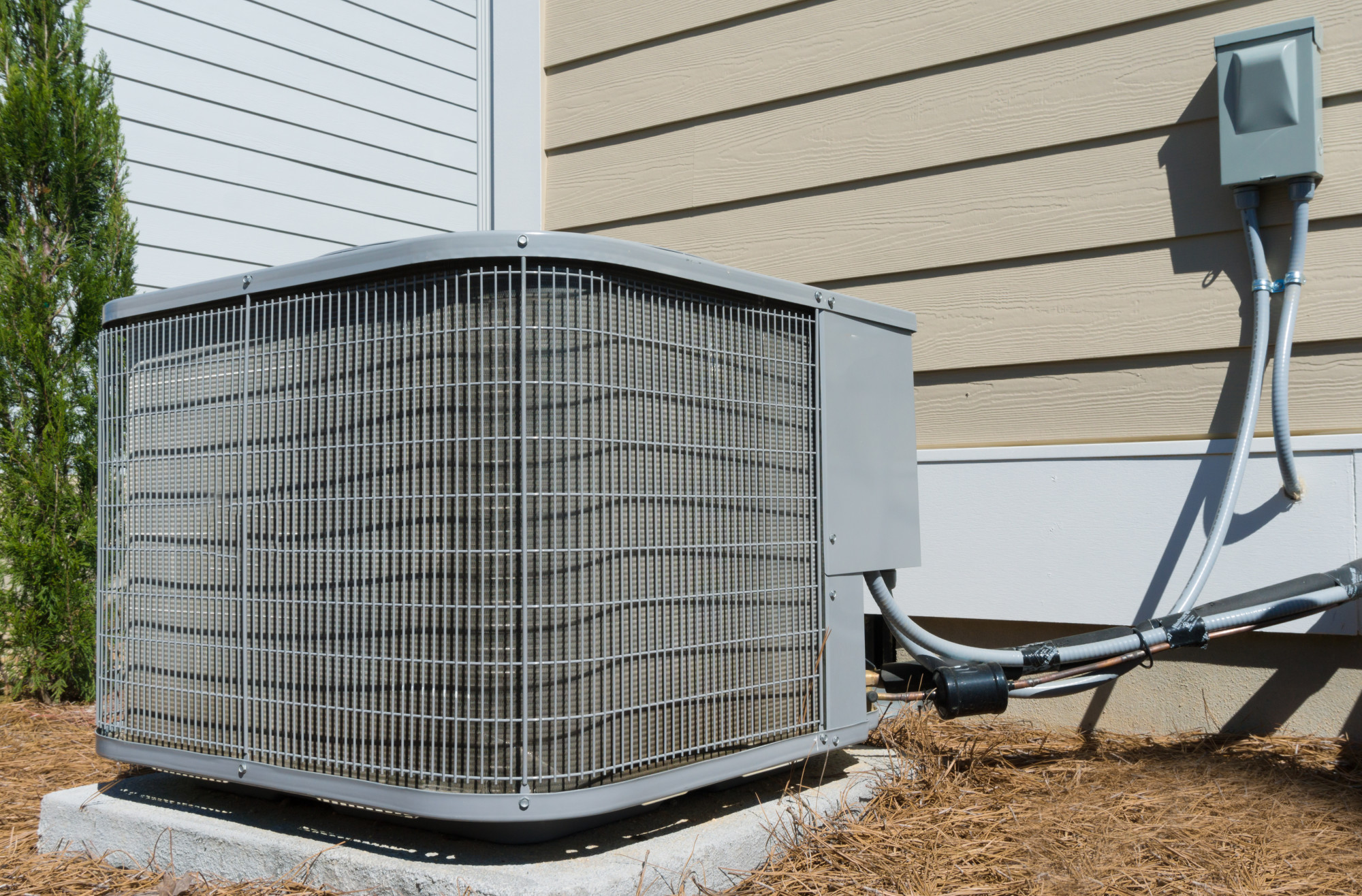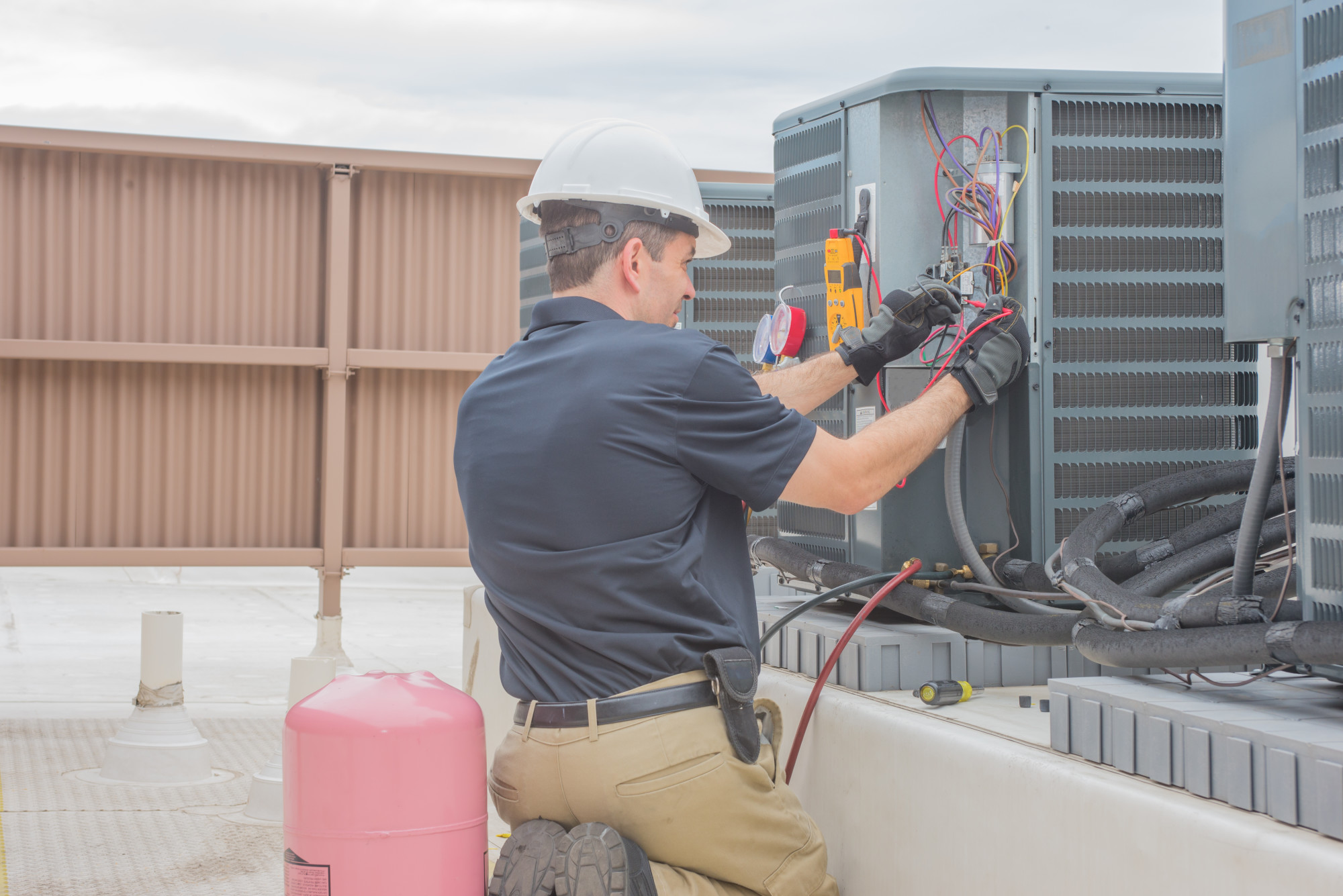What Is That Smell? Is My HVAC Unit Ok?
Did you know that natural gas has no smell? The scent is added to alert people to the dangers when a leak occurs. But do you know what the other characteristic odors are that could spell trouble in your home?
If you switch on the heating or air-con and get suspicious scents, you really can't ignore it. Read on as we answer the question "What is that smell?" so you can keep your household safe this season.
Safe Smells
When you first turn on your HVAC or heating system for the season, you may encounter a smell of burnt dust. This is perfectly normal and is just an accumulation on the vents, registers, and heat exchangers as the furnace fire up and burns them away. Luckily, this should go quickly and only be noticeable the first few times you start it.
This can be prevented by cleaning the system before you begin. Hire a professional to do this for you and perform maintenance. This will allow them to alert you to any problems that could arise in the coming months, so you are not left with unexpected HVAC outages.
There are a few smells that will require immediate assistance. They can signal problems with the HVAC components. In some cases, breathing them in may even be harmful or fatal.
Burnt Electrics
Burnt dust and electrical burning have a similar scent. However, burnt electrics often has a slightly more metallic and plastic smell to them. It will give the scent of something that is overheating or has burnt out.
When you get this, turn off your system right away. The danger is that leaving it on could result in an electrical fire if you have an old system with fewer safety functions. Once it is off, you can check for issues safely.
Start by looking at the air filters. If they are blocked, the system works overtime, and the electric resistance heaters can start to get too hot. To prevent this, make sure you are replacing your air filters regularly.
If air filters are not the issue, it is something to do with the wiring. Turn the electricity to the system off immediately. Unless you are a trained electrician, you need to call a trained HVAC repair engineer to assess the situation.
Sulfur
The smell of sulfur is characterized by the scent of rotten eggs. If you don't have any cause for this to occur naturally in the home, you need to act fast. Open your windows, leave the home and call your local gas company.
A rotten egg smell is often the sign of a gas leak. Gas is naturally odorless, but many companies add scents to tell people when leaks occur. It is not something you should ever ignore.
Chemical Odor
There is only one chemical that could cause issues in your HVAC system. That is the refrigerant in the heat exchanger. Its job is to remove heat from the combustion chamber and deposit it into the plenum.
A faint smell of chemicals such as formaldehyde signals a leak. This can start electrical fires. However, more worrying is that it can send deadly carbon monoxide gas into your home.
Mustiness
Mustiness is most associated with HVAC systems. They contain a lot of moisture which can pool in their many vents and spots. If left unattended, this can turn into mold.
Luckily, mustiness is not a smell that is usually harmful to you or the system. It will, however, make your air quality suffer. Run the heater for a few hours and see if the smell vanishes.
If not, you will need to get professional assistance to remove the smell. An HVAC technician will know the nooks and crannies where mold builds. They will also have to tools to get into these spots and solve any issues, as well as preventing them from returning.
Oil
A burning oil smell can be the result of two problems. Neither of them is dangerous, but it is a very unpleasant odor that needs removing from the home.
Check around the system. If you can not see any oil, then you may have issues with the oil burner. Soot and smoke indicate more serious issues, along with odd sounds.
If you do find oil, then something may be wrong with the fittings. Check and tighten any oil lines, filters, and fittings. If leaks still occur, the threads may have gone, and the part may need replacing.
Gas
As well as a rotten egg smell, gas also has its own characteristic tinge. This most commonly occurs when you first put the heating system on at the start of the season.
A faint gas smell that dissipates should be fine. However, you should still get a technician to look at it. It may be a case of dust getting burnt off.
A lingering or strong smell is a serious issue. Follow the same instructions your would for a rotten egg smell, opening windows, and leaving the home. The gas could ignite and could make you and your family sick.
Prevention
An odor that persists, or smells of gas or smoke, should be dealt with immediately. Anything else will end be more unpleasant than dangerous. However, it may be hard to get someone to deal with this at the start of a season, as many people fire up their systems and find the same problems.
The best way to deal with this is prevention. Hire a regular maintenance service to clean the system and notify you of possible problems before they occur.
What Is That Smell?
Now you can answer the question "What is that smell?" you should know if you have a major problem. In any case, the issue will need dealing with unless you can stand to live with the odor in your property.
Your first stop for HVAC maintenance and repair should be P&M HVAC. We provide services, financing, and reviews to the Houston area. Contact us here to discuss your needs and schedule our services starting today.
10 Warning Signs That You Need an HVAC Emergency Repair
Whether you’re coming home to a chilled house during a Texas summer heatwave or to a toasty home during a frigid winter, a working air conditioning and heating unit is something homeowners should never take for granted.
These sophisticated electrical systems give some hints before it goes haywire. And any savvy homeowner should know the telltale signs an HVAC emergency repair is imminent.
Read on to learn the 10 warning signs your air conditioning and heating unit is trying to tell you it needs some maintenance or repair.
1. The Thermostat Isn’t Working
One of the first signs your air conditioning and heating system might need to be evaluated by a professional is when the thermostat stops working.
When a gentle nudge in temperature does nothing to prod the air conditioning unit to kick in, there might be something wrong with the thermostat. It may be as simple as replacing a battery.
HVAC problems can start small at first, but if not addressed with an evaluation by a professional, who might suggest routine maintenance, it could be a costly repair.
2. The Opposite Air Temperature is Coming From the Vents
If the air conditioner should be blasting chilled air and you notice warm air blowing through the vents, you should definitely call an HVAC repair service.
The same goes for the winter months. If the heater is supposed to be on, but the air coming out of the vents is cold, it’s a definite warning sign.
The problem could be a clog in the ductwork or a low level of refrigerant. Calling a professional for a review of your air conditioning unit will help you identify the culprit.
3. The Outside Unit’s Fan is Not Moving
It’s normal to see the fans rotating in the outside air conditioning and heating unit. If you notice the fans not moving, and the ac compressor is clicking on, that is cause for concern.
The problem could be a bad fan motor. The motors are working hard at blowing the hot air out of the house and can be burned out from overuse.
There also could be a problem with the electrical power source. Or some outside debris is preventing the fan blades from spinning.
For an emergency HVAC repair, many local companies in Houston, Texas will come to homes and businesses for a service call. Calling a pro to do a once-over will help get the cold air running into the house sooner rather than later.
4. There is High Humidity in Your House
Central air conditioning units also regulate the humidity in your home. If you notice the air is a bit humid than normal, it might be time to call an ac repair service.
Researchers at the Mayo Clinic concluded the ideal humidity in your house is between 30 and 50 percent. A lower humidity could lead to dry skin. High humidity could cause bacteria and mold to grow.
5. Odd Smells Coming Through the Vents
If you take a whiff and the air streaming through the vents smells funny, take it as an ac unit warning sign.
Any odd odor — a musty smell or a burning plastic smell — could indicate a problem in the ductwork or be a signal that you need to call a professional to sanitize and clean your air ducts.
6. The Carpet Near the Inside Unit is Wet
If you’re walking by the indoor air conditioning and heating unit, and feel a damp or wet spot, it could be a sign the system is not draining.
If your air conditioner is leaking water, the culprit could be a clogged drain line. Another possibility is that the unit was not leveled when it was installed. The slightest tilt could cause the overflow of water in the collection tray to spill over.
7. Ice on the Evaporator Coils
When you see ice forming on the indoor evaporator coils, that is a red flag that your air conditioning and heating system is due for major HVAC repair.
While the ice itself is not harmful, the reason for the frozen coils could mean trouble. The ice appears on the coils because the coils are staying colder than they should.
Homeowners should not try to chip off the ice to fix the problem. Doing so could cause more damage. It’s best to call a Houston-area professional to identify the deeper issue.
8. Low Air Flow
Another air conditioning unit warning sign is when the air flowing from the vents has slowed. Low airflow could be a signal there is a blockage in the air ducts. Or your home has an inadequate amount of vents to
Experts recommend a routine air duct maintenance schedule to keep the dust and dirt buildup to a minimum.
9. Loud Sounds Coming From the Air Conditioning Unit
The intermittent humming of your air conditioning unit as it kicks in is a beautiful sound. Should you hear a loud knocking sound or a banging noise from your system, it might be a sign your unit is at the end of its lifespan.
If the sound is unusual, don’t be afraid to seek the help of a repair service to diagnose the problem.
10. Numerous Breaker Trips
Another telltale sign to call for an HVAC emergency repair service is when your system is continually tripping the circuit breaker in your home.
There could be a serious underlying electrical issue. These are serious hazards that lead to electrical fires. Calling in a trained professional will prevent any serious damage.
HVAC Emergency Repair Takeaway
A home’s air conditioning and heating unit system is what homeowners rely on with little fanfare — until it stops working.
But before a system quits working, there are typical signals and smells that forewarn needed repairs. Now that you know the 10 signs for when to call for an HVAC emergency repair, don’t ignore the warnings.
If you notice any of these issues, contact our specialists for same-day repairs. We are experts in air conditioning and heating unit systems, and service Houston residential homes and businesses.
6 Amazing Benefits of a Central AC System for Your Home
If you're a homeowner that's been making do with multiple window units for years, it might be time to make an upgrade. Not only is having a central AC system convenient, but it actually adds a lot of value to your home — immediately and over time.
The initial investment can seem a bit daunting, but the difference you'll feel in your space once it's done is immediate.
If you're still not convinced, read on to learn six benefits of having a central AC system in your home.
1. Conveniently Cool Multiple Rooms
Having a central AC system automatically means that every room in your house is going to be cooled at the same time. It also means you only have adjusted the temperature in your home once rather than having to walk from room to room to switch all the buttons.
One thing you do lose out on is being able to temperature control each room in your home, but it's easy enough to turn fans on and off, or close vents as it's needed.
Central systems do, however, do a better job at simply cooling your home a lot faster. They circulate air more efficiently than window units are capable of, meaning you won't have random cold and hot spots throughout your house.
2. Cleaner Air
Not only are you going to reduce the humidity levels in your home, but you're also going to be providing it with cleaner air in the long run. Whole-home AC powers exactly that — your whole home — by circulating air pulled from different rooms throughout the entire house.
As it gets pulled into the vents, that air also runs through a filter that removes airborne particles like dust, lint, and other allergens. These filters have to be replaced on a monthly basis to keep the air as clean as possible. This benefit is great for those with allergies or other respiratory problems.
A central AC system can also help with regulating the amount of humidity in the air. There's an evaporator coil that condenses and removes vapor from the air. similar to how liquid condenses on the outside of a cold glass.
3. Lower Energy Bill
As more energy-efficient ways of powering our homes pop up, the more the United States' average energy bill decreases. Part of that decrease comes when you switch from regular window units to a central AC system.
Since the power that's heating your home is coming from one central source instead of multiple standalone sources, then it's easy to see why cheaper energy bills would be such a possibility.
Not only that, but newer AC systems are simply more efficient than older ones. If your window units are over eight to 10 years old, then it's time to replace them all anyway. A central AC system, however, can last up to 15 years with proper care and maintenance.
4. Less Maintenance
New AC systems actually require very little maintenance. Usually, all it takes is an annual inspection from a professional and routine service to keep things running smoothly.
Often, the company you hire to install your AC system will have a warranty that comes with a maintenance plan. It's smart to ask about this beforehand, but if you're already searching for a maintenance person, then be sure to ask what their annual maintenance plans are units.
The best time to have your AC inspected is right before the hot season starts so you're not stuck with problems later down the line. All that usually happens during these visits is component cleaning, lubrication, and inspection to ensure everything is working properly.
5. Higher Home Value
Lastly, and this one's big if you're looking to sell your home at some point, having a central air conditioning system is going to add a higher resale value to your home. It's also an investment that holds its value over a long period of time.
It adds luxury to any space it's present in and is sure to be a great addition to any home.
6. Their Design Is Much Sleeker
The last, and possibly biggest thing, is that central AC systems are much sleeker than individual window units. You'll have an improved view from all the windows in your home, and you'll also be able to have more natural light seep its way into your space.
You can purchase window treatments or drapes for all the windows that had AC units in them, and you don't have to worry about the space around them being clear any longer!
That also means you'll have more space to move around in your home with. You can place furniture or tables around and under the windows that you gain back, and you don't have to worry about any noise they create when they turn on and off.
Sure, central AC systems create some noise, but they are a lot quieter than outdated window AC units.
On the flip side, if your singular unit was built into the wall, that frees up space for you to hang art or other things in its place. No more staring at a large vent in the wall.
Add Comfort to Your Home With a Central AC System
It's no question that having a central AC system installed in your home is a great comfort to have. Not only does it add modernity to your space, but it makes living more comfortable in the long run, which makes everyone in your home happy.
If you're ready to have an AC unit installed in your home, contact us today to get started.
6 Things You Need to Know Before You Buy an HVAC in Houston
HVAC systems are some of the most popular home appliances across the country. In fact, around 12% of all the energy used in homes comes from heating and air conditioning. These units make our homes comfortable to be in and keep us from getting too hot or too cold. And that's why they're seen as a necessity for most homeowners and are well worth the investment it is to get them installed and to keep them running. Even though they're so valuable, it can be difficult to feel confident in your decision when picking a system. We've created a guide of the top six things you need to consider when buying HVAC in Houston.
1. Unit Types
Not all HVAC systems are created equally, there are many different types and it's important that you check out each kind to find the one that best fits your home and needs.
The main difference between systems is whether the air conditioner is permanent or removable. Removable units are usually either placed in the window or the wall and are the only source the air will flow from. Permanent HVAC systems usually have some kind of duct system that moves the air throughout the home.
Both of the types have pros and cons, it's just a matter of figuring out which system will get you the right amount of airflow and in the right places.
Your HVAC expert will be able to give you advice based on the layout of your home and the climate of your area to keep you as comfortable as possible!
2. Typical Maintenance
Even though most systems are very durable and built to last for several years, there is still maintenance that must be performed after HVAC installation.
This extra work is important to consider as you make your decision because it can really affect the longevity of your system. The last thing anyone would want is to spend the money to get an HVAC system in place only to ruin it a short time later because you weren't prepared to take care of it.
A lot of homeowners choose to have regular, professional maintenance check-ups just to make sure everything is running correctly and avoid major breakdowns. Those are all things to be considered before you buy HVAC in Houston.
3. Needed BTUs
Another key consideration to make when choosing an HVAC system is how many BTUs the machine can produce and how many you need to make the space feel more comfortable.
BTUs are essentially the way to measure how many degrees the unit can change the air temperature in an hour.
This measurement can be a little confusing because you don't necessarily just want the machine with the highest BTU rating, it all depends on the room you'll be using it in. You'll want to work with your HVAC professional to find the right balance to get and keep the temperature you want, while not overwhelming your machine causing it to break down.
4. SEER Ratings
HVAC systems are also rated based on the SEER scale as well, which should be something you pay attention to as well. This rating refers to how efficient a machine is or not.
The Seasonal Energy Efficiency Ratio will help you determine how much money it will cost you to run the machine enough to get the temperature you're looking for. A unit with a higher number is more efficient and will save you money compared to a unit with a lower number.
Seer rating numbers are one of the best ways to directly see the difference between units. If energy efficiency is important to you, this number will help you find one that will meet your standards.
While the number isn't the only thing that should be considered, it can play a very important role!
5. Budget Accommodations
Getting an HVAC system installed in your home or replacing an existing unit is a major investment. Most homeowners don't have that kind of money just lying around, which is why taking the time to research options is so important.
Even though most homeowners would like to be able to spend whatever they want on a new system, taking the budget into consideration is crucial. This way you're not overextending your finances and putting yourself in a bad position for the future. Luckily, there are a lot of good options at a wide variety of price points to choose from.
Don't forget to add in the cost for the professional installation as well. You'll want this investment set up right so you can enjoy it for years and years to come. Money well spent indeed!
6. Smart Thermostat Connections
Many homeowners have begun to implement smart technology into their home systems. These technologies make it easy to automate your home and make it all the more functional.
One of the most popular pieces of smart home technology is the smart thermostats. These allow you to program settings where the system will have a schedule that it follows, with specific times for turning on or turning off. It also allows you to control the system from anywhere you have a cell signal.
Most HVAC systems will work with a smart thermostat but it's helpful to have your HVAC professional make sure everything is linked correctly to avoid any problems.
Buy an HVAC in Houston
Making sure your home is at a comfortable temperature is especially important when you live in such a hot climate, like Texas. Buying a good HVAC in Houston can make all the difference in your daily life.
The best way to make sure you get an effective unit that will last you for years to come is to go through a reputable, professional company like P&M. We have the expert advice you'll need to pick the right units and systems, get them installed correctly, and perform any maintenance that comes up.
If you're interested in learning more about your options and getting the process started, contact us today to set up an appointment!
Thermostat Not Working? Here's What To Do
At some point in our lives, we have all felt what it is like to experience thermostat problems. Depending on where you live, that could entail no cool air in the middle of summer or no heat during the winter. Texas is one of the hottest states in the country, so when your cooling system doesn't do its job, it can leave you in an uncomfortable situation. Luckily, there are a few things you can do to check before hiring professionals. Thermostat not working?
It's likely due to needing a battery replacement, but there are other possible causes. Learn what they are and what to do here.
Check the Power to the Thermostat
When your thermostat goes out, the first thing you want to do is check the power. Depending on what kind of thermostat you own, it may run on either AA or AAA batteries. Others work off of the power supply given off by your home's HVAC system.
To start, you'll need to identify which thermostat you own. If you suspect the batteries are dead, change them out and turn your thermostat back on. If it doesn't boot up, there may be another issue.
If you have a thermostat wired to your house, head to your breaker panel to check you haven't tripped a breaker. If you have, resetting the breaker is a simple fix.
However, if you blew a fuse, the Occupational Safety and Health Administration advises that unqualified personnel should not try to reenergize the circuit or fuse. That is because this poses a risk. So, if you suspect a fuse, be sure to call in a professional.
You also want to keep in mind that some thermostats work on a time delay. That means that even if it is your batteries or circuit breaker, the AC system may not boot up right away. Give it a few minutes to get going before you decide that it is faulty.
Check the Age of the Thermostat
The average lifespan for a thermostat is about 10-15 years. Age is one of the most common thermostat errors. So, check to see when you installed it.
If you live in an older house, look to see when the previous owners installed the thermostat. One way to tell age is whether the unit is digital or not. Most modern thermostats are digital, some with a touch screen.
Older systems are manual and may have dials or buttons on them. There is a chance that your thermostat is failing due to old age. If you suspect this to be an issue, then you might have to look into buying a whole new system.
If you have an old thermostat, then it contains mercury. Be sure not to throw it in the trash, as this is harmful to people and the environment.
Mercury poisoning can cause serious health effects to anyone exposed. Instead, be sure to recycle. That way, the mercury is handled by professionals.
Check the Mode of the Thermostat
It seems like a no-brainer, but go ahead and double-check the settings on your thermostat. Many people tend to jump to the worst possible conclusion when all that needs fixing is the mode.
If your AC is blowing warm air, make sure your thermostat isn't set to heat. That is an easy mistake to make, especially with digital thermostats. You can accidentally hit other buttons without realizing it.
Check the Temperature Setting
Along with the mode, you want to check the actual temperature setting. Look to see what the degree says on the unit. Some people like their homes to be a cool 74 degrees.
But your AC won't work if you accidentally set it higher or if you don't hit the necessary buttons. For instance, some thermostats require you to hit 'enter' before it starts cooling your house down.
Check the Calibration
Did you know that the placement of your thermostat system affects the unit's performance? Many people do not realize this, but the location is everything to keeping your system calibrated.
For instance, if your thermostat is near a window, then the sunlight may hit it and throw the temperature off. The same is true if you set it too close to a hot lamp or if there is a particularly drafty area in your home. To avoid misplacing your thermostat, speak to a professional who can assess your home and tell you the best location.
Call a Professional
If all of that troubleshooting doesn't work out, it is time to call in a professional service like us here at P&M. A company that specializes in HVAC systems will come out to check what is wrong with the thermostat.
They know all of the ins and outs, so their troubleshooting is much more thorough. That enables them to get to the root of the problem and fix your system so that you and your family remain comfortable in the hot Texas months.
Thermostat Not Working Services
As you can tell, there are several things you can do and check to see why your thermostat is giving out. Remember to check the battery and settings of the device. And if none of these tips help fix your thermostat, you may need to call some professionals.
At P&M, we offer high-quality services to ensure you stay comfortable during the hot Texas months. Feel free to contact us today and ask, "why is my thermostat not working?". We will gladly give you the answers you need and schedule an appointment to come out and fix the problem soon as possible.
7 Common HVAC Maintenance Mistakes and How to Avoid Them
HVAC systems can hold up fairly well on their own. But if you really want to get the most out of your HVAC system, you need to provide it with regular maintenance. That said, not all maintenance is good maintenance. You can get it wrong and, in some cases, actually do damage to your HVAC system. Curious as to the kind of HVAC maintenance mistakes that you need to look out for? Then read on. We're going to cover them in detail below.
1. Failing to Replace Your Air Filter
Over time, substantial amounts of dust and debris can make their way into your HVAC system. This not only causes a problem with your indoor air quality but also puts unnecessary strain on your system, sucking up excess energy and costing you more money on your electric bills.
But, fortunately, every HVAC system is equipped with something that can help keep dust and debris to a minimum. This "something" is an air filter and it gets dirty fast.
It gets dirty so fast, in fact, that it needs to be replaced frequently, usually every 3 months. If it's not replaced within this time period, it will fail to do its job, and your HVAC system will take on more and more dust and debris.
So, in short, make sure to replace your air filter. Again, every 3 months is customary. However, if you have furry pets in your home (like cats or dogs, for instance), you might want to make a change every 1 or 2 months instead.
2. Cleaning Your Coils With an Acidic Cleaner
Another mistake that's common when performing HVAC maintenance is using an acidic cleaner on the outdoor HVAC unit's coils. These coils need to be cleaned, yes, but they're not designed to withstand the effects of acid and other chemicals, no matter the potency.
When cleaning your coils, you can make do with just a low-pressure stream of water. Grab your hose and pour it down onto the coils, all the while scrubbing them with a coil brush.
After some time, debris will start to flake off and your coils will be good to go for the foreseeable future.
3. Only Vacuuming Your Vents
As we've noted, over time, an HVAC system becomes inundated with dust and debris. Even if you replace your air filter faithfully, this will happen.
Yes, you can remove some of this debris by vacuuming out the vents within your home. However, that's only the tip of the iceberg. If you're not also vacuuming out your air ducts every 3 to 5 years or so, you're exposing your home to a bevy of allergens, not to mention putting undue strain on your HVAC unit.
How do you clean your air ducts? Well, you'll have to disassemble them and then use a vacuum to suck up debris. After you're finished, you'll then have to reassemble them.
This can be a daunting task for some. So, if you need help, don't be afraid to call up your local HVAC company.
4. Failing to Keep the Condenser Area Cleared
Your air conditioner condenser exists on the outside of your home. Because of this, it's exposed to all sorts of things that are found outdoors, from falling branches to rocks to dirt and much, much more.
Now, condensers do a fairly good job of protecting themselves from these entities. But, in some cases, objects will actually fall into the condenser, posing a danger to its internal propeller. This can lead to serious structural and mechanical issues, which can cost substantial amounts of money to repair.
Unfortunately, many homeowners do little to prevent this from happening. You shouldn't be one of these homeowners.
You need to take action to keep your AC condenser area cleared. Trim up tree branches, hedges, and other vegetation, leaving at least 5 feet of clearance around the condenser. Try to also keep the area free of potentially harmful objects, like stones, thick pieces of wood, and the like.
5. Trying to Repair Problems With Only a Little Knowledge or Experience
Regardless of the quality of your HVAC system, little problems are still bound to pop up from time to time. For instance, a belt might come loose. Or, your condenser propeller might become bent.
You might think that you're capable of making these repairs and, in some cases, you might very well be. However, you don't want to push it.
Unless you have experience and knowledge of the repair that needs to be made, you need to instead hand the repair off to a professional. Trying to make a repair that you're not familiar with could cause even further damage to your HVAC system, costing you tons of extra money in expenses.
6. Not Having Your HVAC System Inspected By a Professional
Perhaps the biggest mistake that homeowners make when it comes to HVAC maintenance is not having their HVAC systems inspected by a professional. Sure, you might be able to handle a decent amount of the maintenance that goes along with owning an HVAC system but if you're never exposing your HVAC system to professional eyes, it could be suffering from a bevy of discreet problems.
Having your unit checked by a professional is important because professionals know exactly what to look for. They can tell when a specific component isn't operating correctly. They can tell when a part is in need of a replacement.
Make sure to schedule a professional inspection annually. Allowing problems to go on for longer than this could be disastrous for an old HVAC unit.
Don't Let These HVAC Maintenance Mistakes Hurt Your HVAC System
These HVAC maintenance mistakes can have quite a negative influence on your HVAC system. As such, they must be avoided as much as possible.
Need help with regular HVAC maintenance? Need HVAC maintenance or HVAC repair service in Houston, Texas? We here at P&M are the people to see.
Contact us now to get the process started!
7 Important Spring HVAC Maintenance Tips
Spring has sprung. In Texas, that means the heat is coming on. This is the time of year when you most desperately need your HVAC system to be working. But a functioning HVAC system requires routine HVAC maintenance. Without it, you may accidentally overwork or break your unit. Can you imagine being without AC in the hottest months of a Texas summer?
Fortunately, you don't have to. Keep reading for 7 important spring HVAC maintenance tips. This guide will help you maintain your HVAC system and keep it running smoothly.
1. Test Your AC Before You Need It
Too often, homeowners wait until the hot weather is upon them before they turn on the AC for the first time that season. This is a mistake.
If you haven't been routinely using your AC, it may have developed an issue over the winter that you are not aware of. You may go to turn on your AC for the first time in a few months and realize that it doesn't work.
This is why you should always test your AC about a month before you think you will need it. Listen for weird sounds and look for leaks. If you notice either of these things, call a professional for HVAC service.
2. Change Your Air Filter
The air filter on your HVAC system needs to be changed fairly regularly. Experts recommend changing it at least every 90 days. Perhaps more frequently during times of high use, like spring and summer.
A professional can help you determine the appropriate size for replacement filters. They can also tell you what kind of filter will be the most efficient for your system. But changing the air filter is an easy process that you can do on your own.
Turn off your HVAC system. Then remove the access panel on the unit. Remove the dirty air filter and replace it with the clean one.
Then replace the access panel. You are ready to go for the next 90 days!
3. Install a Digital Thermostat
One way to make HVAC maintenance easier is to make your system more efficient. Installing a digital thermostat makes your heating and cooling system instantly more effective.
Digital thermostats allow you to set your HVAC to a precise temperature. Programmable thermostats will let you control the temperature in different rooms and set time limits on your heating and cooling. This kind of precision creates maximum efficiency and helps keep your system running smoothly.
4. Clean the Air Ducts
Air ducts have a tendency to collect dust and grime. The more accumulation there is, the harder your HVAC system has to work in order to get its job done. Dirty air ducts can lead to higher energy bills, dirty homes, and even health problems.
You should have your air ducts cleaned by a professional every 3-5 years. Telltale signs that it's time to clean the air ducts include dusty vents and mold or mildew in the home. Pay special attention to your air duct vents in the spring, since that's when many people activate their AC for the first time in a few months.
5. Unclog Your Drain Line
AC problems sometimes stem from a clogged drain line. If you suspect that you have this issue, turn off your HVAC unit at the breaker and at the thermostat. Then locate the AC condensate pan.
This pan is likely located under the unit. Pull it out. If you have any standing water in the pan, it is probably due to a clogged drain.
Call a professional to help you with this issue. Leaving it unresolved can result in a broken or hazardous system.
6. Trim Back Your Garden
Keeping obstructions away from your HVAC system is a good rule of thumb all year round. Try to keep at least two feet clear in any direction. But it is especially true for outdoor units during the spring.
Everything begins to bloom, and things may grow in front of your system that were not there in the winter. For outdoor units, mow any grass that may be in the way. Also, take care to trim any branches, stalks, or leaves that could become an obstruction.
The same goes for indoor units. Did you get a portable AC unit to beat the heat during the warm spring months? Then be sure to keep the area clear on all sides to avoid inefficiency and hazards.
7. Clean Vents
The vents, also known as "grills," are the connectors between your air ducts and the rooms of your house. Your HVAC system blows air through the air ducts and vents to heat or cool your home. If there's anything clogging the vents, your system won't be able to function effectively.
To clean the vent, remove it from the wall or floor and wipe it down on both sides with a damp rag.
Remember that your vents also serve as a litmus test for your air ducts and HVAC system. If there is a large accumulation of dust, grime, or mold, it is likely indicative of a larger problem. Call a professional immediately.
HVAC Maintenance Keeps Your Home Running Smoothly
Spring maintenance is important for a functioning HVAC system. And if you have questions about the process, we are here to help.
Our team at P&M Air Conditioning and Heating has been servicing the Houston area since 1947. We're a family-owned and operated business that is committed to providing you with one-on-one customer service every time.
If you have HVAC maintenance questions or concerns, we can help. Visit our Contact page to get in touch with us today!
HVAC Maintenance Schedule: Season by Season
Air conditioners generate 6% of all the electricity used in the United States.
You can reduce your energy use from air conditioning by 20% to 50% through energy-saving actions such as switching to a high-efficiency AC.
Another action you can take is regular HVAC maintenance. With spring in full bloom and summer right around the corner, it's important to make sure your HVAC system is running efficiently.
Your maintenance plan should not just be limited to summer. Keep reading to learn how to have an HVAC maintenance schedule for all the seasons.
Spring and Summer
You know that the heat in the greater Houston area is brutal during the summer. Before the summer hits, you should inspect your cooling system.
Change Filters
This is something that should be done year-round. At a minimum, you should change the air filters on your HVAC system at least once every 90 days. You can change it before the beginning of each season.
However, you may need to change the filter more often than if anyone in your household has allergies or if you have pets. You might also need to change it more often if you constantly use the air conditioner, which definitely is a possibility during hot Texas summers.
You should change the filter regularly because it can impede the function of your HVAC system.
When the filter is full of dirt and dust, it can block the airflow of the unit. It can also bring dirt into the evaporator coil of the air conditioner which can affect the performance of the unit.
Check Outdoor Unit
Another thing you can do before the summer arrives is to inspect your outdoor air conditioner unit.
If you cover your unit during the winter, you can uncover it and inspect it. Clear away any twigs, dirt, grass, or other debris that could be blocking the unit. Trim any nearby shrubs or grass so that they don't block the unit.
Check the Thermostat
Check the thermostat and make sure it is set to the right setting for the warmer months. You can also turn on your air conditioner to make sure it is working properly.
You also might want to upgrade to a programmable thermostat if you don't have one. You can save up to 10% annually by programming your thermostat back 7-10 degrees from how you normally set it.
Yearly Air Conditioner Maintenance
In addition to the above, you should have a professional technician come out and do a tune-up of your air conditioner system. You should have a professional check-up of your heating and cooling system at least once a year.
A regular maintenance plan can improve your unit's efficiency and catch any problems that may affect performance.
The following are some of the things a technician may check during a routine service appointment:
- Check refrigerant
- Check condensate drain
- Check evaporator coil and condenser
- Check electrical components
- Check blower parts
- Check belts and motor
Although there are some things you can do yourself when it comes to HVAC maintenance, many parts should be left to a professional technician who has the right training, tools, and expertise in HVAC systems.
A professional will be able to correctly diagnose any issues you're having with your heating or cooling system.
Fall and Winter
You want to set an HVAC maintenance schedule for the cooler months too. The focus for the fall and winter should be the heating system. Here is a checklist to go through before the winter arrives this year.
Turn on System
A simple thing you can do is turn on your heater to make sure it's working properly. This is also something that you can do before each season as a part of your HVAC maintenance.
Clean Vents
Check and clean your vents regularly to make sure there are no obstructions, debris, or dust. If the vents are dirty or blocked, your HVAC system will have to work harder to warm up the house.
Yearly Heating System Check-Up
Just like with your cooling system, you should schedule an annual check-up of your heating system.
The fall is the best time to do a maintenance check-up because it's usually less busy than the winter. Also, it's better to be prepared and make sure your system is running smoothly before the winter begins.
You don't want to have to call an emergency service appointment when it's nearly freezing outside.
Some of the things a technician may inspect during a service appointment:
- Inspect heating operation and heating controls
- Inspect crankcase heater
- For heat pumps, inspect reversing valves
- Change air filters if needed
Warning Signs You Need HVAC Repair
You can check for common issues with your heating system such as a strange noise or a banging or clanging sound. Another common issue is a strange odor when your heater is in use.
You can also make sure there is warm air blowing from the vents and that airflow is not blocked or weak.
You should also check for leaks or moisture buildup. If you do see a leak, you should call a technician right away to get it checked out.
Set up a Regular HVAC Maintenance Schedule
The above are some things you can do to make sure your HVAC system remains in good shape. By maintaining your heating and cooling system, you are extending its life, and you can save on your energy bills if your system is running efficiently.
Ready to set up a maintenance schedule with P & M Air Conditioning and Heating? Contact us today to schedule your first service appointment.
Should I Cover My A/C Unit in the Winter? Your Question Explained
The summer may seem far away, but it'll be here sooner than you think. And once that heat starts ramping up, you're going to want to make sure your home is cool and comfortable.
In the meantime, though, your A/C unit likely is a bit colder than that. We'll go over some winterizing tips that can keep your HVAC system in tip-top shape come summertime.
Covering Your A/C Unit
The first question you need to ask yourself is, "how old is the A/C unit?"
Modern outdoor A/C units are manufactured to endure weathers of all different extremes. Your A/C box (the condenser) is built specifically to stand up against all but the most extreme highs and lows of weather.
The same goes for the internals. Each coil is weather-tested and should manage well.
However, as mentioned at the beginning, how old is your machine? Technology in this field has advanced handily in the past 10-20 years and means that older units may be prone to leaks, cracks, or breakdowns as a result of a variety of factors.
More Than Rain Falls into Your A/C Unit
Consider the location of your external A/C unit. Likely if you're in the Houston area, you don't see much snowfall annually, meaning you don't have to worry about an abundance of snowmelt flooding your system.
That doesn't mean you're out of the woods yet. In fact, if you live in a densely forested area, or your A/C unit sits beneath trees, you'll need to take extra care of it.
Leaves, pine needles, bird nests, seeds, and other debris that falls into an A/C unit can impede its functionality. Leaves and seeds particularly sap up moisture and create a dangerous environment for the inner parts.
And with over 33 million trees in the Houston area, there's a good chance your A/C unit is at risk. Thus when the leaves start turning, it's a good bet that you should cover the unit to ensure these unwanted guests stay out.
Similarly, if over the winter you notice a lot of debris falling into your unit, invest in a cover for your system.
Air conditioner repairs are par for the course in Houston, but a cover can help prevent unnecessary expenses. All in all, having a cover for your A/C unit can't hurt your machine.
... In most cases.
Each Cover is Not Equal
Covers for an A/C unit need to promote airflow. Restrictive covers, especially plastic coverings can restrict this. If your A/C unit doesn't have enough airflow, moisture can build up and actually promote rust and internal damage.
They also can encourage critters to stay for a night or more.
If you decide to purchase a cover, ensure it's breathable and primarily functions to keep water and debris from falling into the unit.
If it does that, without making for a cozy nest or moisture-machine, you'll be in the clear.
Ways to Preserve Your HVAC System
There are two ways you can help cover and protect the unit. The first is to purchase an A/C unit cover. There are many factory-made options that will offer just about any color and style you'd like.
Ensure they have breathability and won't increase the risk of rodents or pests making your system their home.
The other option is you could DIY a cover. You don't want to cover the entire unit. In fact, because covers only need to come down about six inches on the sides, it's fairly easy to find old materials to protect your unit.
Flexible sheets or cloths are good for providing breathability and keeping out seeds, leaves, and the like. Just make sure to take them off if there's a storm brewing, as they will retain moisture and do more harm than good.
Another option for the fall season is using a piece of plywood and holding it down with a brick. This reduces airflow some, but as long as the sides are uncovered the coils and interior should be able to breathe.
Preventative Maintenance Tips
At the start and end of seasons, check your A/C unit to ensure there are no nests, debris, or critters living inside. A quick check can help you take the appropriate next steps.
Clean Up the A/C Unit
Prior to performing any maintenance or going inside the unit, make sure to turn of the system.
If you see dirt, dust, bird droppings, bugs, or anything that could gunk up the machine it's wise to clean it out. Choose a warm day, one where the unit will be able to dry completely in the sun.
Using only warm water, get rid of any of the debris or residue that may have built up inside the machine. Do your best to dry wherever you cleaned to ensure moisture and mold can't build up inside.
Check for Damages
Once you've cleaned your A/C unit, check the wires. If you found animals living in your unit, it's possible they chewed on the wires. Occasionally there will be no trace of an animal except for these damaged wires.
Naturally, that's a problem and may require further repair.
Once you've checked wires, check any exterior piping leading to the unit. These pipes should have foam covers or some protective coating to ensure they don't freeze.
If they don't, or they're damaged, you can purchase pipe covers and wrap them in duct tape to ensure they stay freeze-free.
Check After Storms
If there's a hail or ice storm, check on your A/C unit. Brush away any ice or snow that may be lingering to look for damages.
So long as you do this during the extreme seasons, your unit should last you a long time.
Services and Repairs
HVAC systems are complicated. Regular maintenance is crucial to keeping them in tip-top shape, and a cover can help with that.
And if you find damages or need a tune-up, we service the Houston area. Contact us via call, text, or email with any questions you may have so that your home keeps cool when it's hot, and hot when it's cool.
Should You Run Your Air Conditioner in the Winter?
AC units are crucial to keeping our homes cool during the summer. However, if your home gets stuffy or hot during the winter, you may still be tempted to run the AC and cool yourself off.
What exactly happens if you run your AC during the winter?
While it is possible to run your AC when the weather is cold, you should use it with caution. Here are some air conditioner tips to keep your AC unit from getting damaged during the winter months.
Can My AC Unit Get Damaged if I Run it During Winter?
In short, yes, your AC unit can suffer from damage if you run it during the winter. While AC units can work fine in warm weather, cold temperatures can do a number in the inner and outer workings of your air conditioner.
While you can still run your air conditioner during the winter, there are some signs of damage that you should watch out for. For efficient use of air conditioners, you should pay attention to these signs before your AC unit takes on serious damage.
Overheating Compressor
During the summer, the compressor within your AC unit runs as it should. When the weather gets cold, your compressor will have to work twice as hard, which can lead to overheating.
Using your air conditioner too often during the winter can cause irreversible damage to the compressor. If you do choose to run your AC in the winter, make sure to give it regular breaks to avoid overheating the compressor.
Loss of Lubrication
Lubricants are responsible for keeping the compressor running smoothly. During the winter, these lubricants can freeze up and become too thick to function well. This makes your AC unit's compressor more likely to break down.
These lubricants freeze up extremely quickly in cold weather. Once they become too thick, they are no longer effective at cooling down your compressor.
Cooling Coils Becoming Frozen
Your air conditioner will naturally drip water from within the machine. This is the condensation that naturally builds up in the outside unit. This water can quickly freeze during cooler months, leading to severe damage to your outside AC unit.
This water can gather around the cooling coils inside of the unit, which can easily become frozen. This can easily damage the coils over a short period of time. If the coils become frozen, the machine can overheat, as there is nothing inside of the machine working to cool it off.
If you happen to notice ice building up on your outdoor unit, you should shut off the AC right away. This will give the machine some time to thaw out. If the ice doesn't thaw, then you should avoid using the machine for a while to avoid further damage.
Temperature Sensor
Your AC unit has a built-in temperature sensor that tells it when it should stop running. In order to run your AC unit during the winter, this sensor has to be overridden. By overriding that sensor and running your AC unit during the winter, you can cause it to become ineffective in the future.
The Dangers of a Damaged AC Unit
Naturally, any damage that is done to either the inner mechanisms or outside of the AC unit can lead to costly repairs. Pieces of your AC unit may need to be replaced, or in a worst-case scenario, you may have to replace the entire unit.
What to Do Instead of Running the AC
It's fine to have your AC unit cooling your home on occasion during the winter. However, there are better ways that you can cool down your home without risking damage to your air conditioner.
If you want some air conditioning tips to save energy and money, here are a few things you can do to cool down your home during the winter.
The easiest way to cool down certain rooms in your home is to crack open a window. This will allow the cool air outside to bring the room down to a normal temperature.
If the stuffy room doesn't happen to have a window, fans can work to bring down a room's temperature. Leave the room's door open so that the warm air can escape the room while you run the fan to help get rid of the stuffy atmosphere.
For overly humid rooms, dehumidifiers can help. Simply place the unit in whatever room has gotten too humid and set it to run for a while.
When to Seek Out a Professional
Have you run your AC unit this winter and are worried it may be damaged? There are a few key signs that you should get a professional to inspect your unit.
Firstly, has a significant amount of ice built up around the outside of the machine? Look out for long icicles hanging from the machine, as these are a clear sign that your machine may start to overheat soon.
Has your AC unit been making strange noises or producing smoke? This may point to an overheating problem with the machine. In order to avoid significant damage, you should have it inspected right away.
Finally, has your AC unit stopped working altogether? If so, call a professional immediately to address the issue at hand.
Air Conditioner Tips to Protect Your AC Unit
With these air conditioning tips for homeowners, you can feel safer while using your AC during the winter. Keep these air conditioner tips in mind the next time you play on cooling down your home.
Is your air conditioner not running as it should be? Do you live in or near Houston, Texas?
We're here to help. Contact us with any questions or concerns you have about your AC unit and continue reading our blog for more helpful tips.


